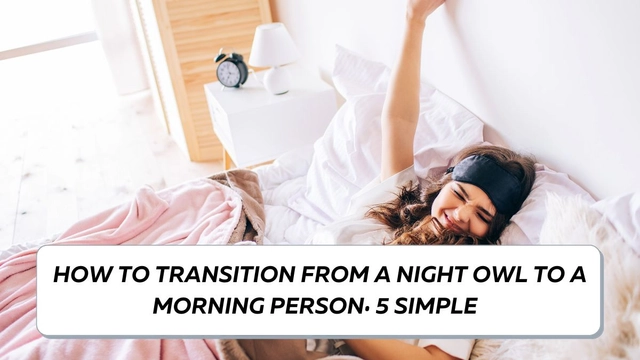- By Priyanka Munshi
- Thu, 06 Jun 2024 11:05 AM (IST)
- Source:JND
Do you know that sleeping peacefully and getting 7-8 hours of sleep is very important for maintaining general health and well-being? Sleeping at night helps regulate vital body processes like hormone production, digestion, and brain activity, as it aligns with our natural circadian rhythms. Good sleep at night improves cognitive abilities such as memory, focus, and problem-solving. Additionally, it lowers the risk of anxiety and depression while promoting mental health and emotional stability.
Furthermore, getting enough sleep at night strengthens the immune system, helping the body fend off infections. Being a night owl can interfere with these processes, but sticking to a regular sleep pattern encourages a more productive and healthy way of living. So here we have gathered some of the easy ways you can change your routine and become a morning person in your life.
Maintain A Regular Bedtime Schedule
Do you know how much an early bedtime ritual can aid in falling asleep and waking up earlier? One hour before going to bed, turn down the lights and turn off all gadgets. You can also engage in calming activities like reading, taking a bath, or listening to podcasts.
Adjust The Time On Your Alarm Clock
To make falling asleep more difficult, always turn off the snooze button, set an alarm clock across the room, and use apps that include intellectually taxing tasks like solving puzzles.
Rely On Daylight
Natural light is necessary for the body's circadian rhythm and can be obtained by going outside, opening windows, or using a light therapy lamp. Getting enough light during the day is essential for regulating sleep and wakefulness.
Get Enough Rest
The quality of your sleep greatly affects your life, and factors like stress, nutrition, and snoring partners can influence how well you sleep. It is necessary to take action to fall and remain asleep.
Also Read: 6 Benefits Of Skipping Rope Every Day For Weight Loss And Getting Toned Body
Change The Time You Go To Bed
Aim for seven to nine hours of sleep per night. Over the course of a few days, progressively adjust bedtime by fifteen to twenty minutes until you achieve the ideal bedtime.
(Disclaimer: This article is for informational purposes only. It is not a substitute for professional advice, diagnosis or treatment.)

